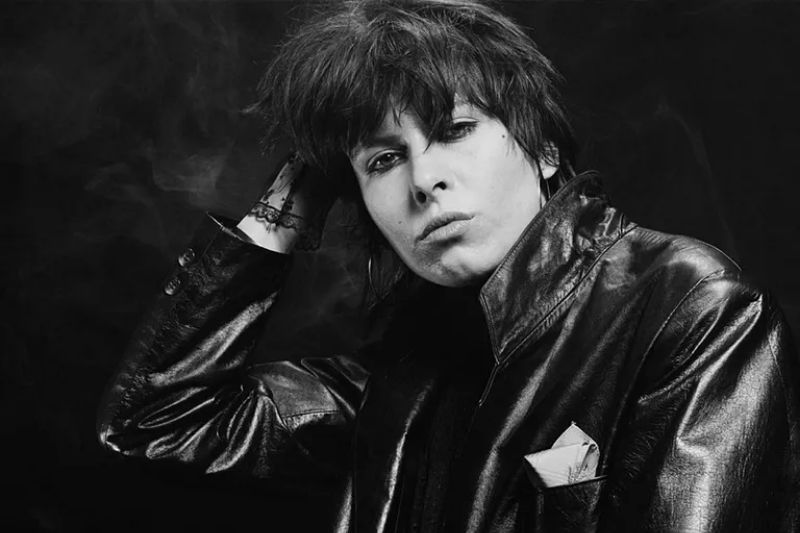Queens of the Stage: The Unforgettable Legacy of Female Rock Icons of the 70s and 80s
The air crackled with rebellion. The stage lights pulsed with raw energy. From the gritty underground scenes to sold-out stadiums, female voices rose to challenge conventions and redefine rock music. The 1970s and 1980s witnessed a seismic shift in the music landscape as women seized microphones and instruments, forging a path in a genre often dominated by men. These were not just singers; they were pioneers, iconoclasts, and artists who reshaped the very definition of rock and roll.
Emerging from the counterculture movements and the burgeoning punk scene, these trailblazers carved their own space in a male-dominated industry. They refused to be confined by existing notions of femininity or musical expectations. With leather, lace, and a fierce determination, they wielded their instruments like weapons of mass sonic destruction, their lyrics dripping with both vulnerability and unbridled power.
The importance of these female rock icons extends far beyond the music charts. They became symbols of empowerment for a generation of women, proving that they could rock just as hard, if not harder, than their male counterparts. Their music addressed social issues, challenged gender norms, and provided a soundtrack for a generation yearning for authenticity and change. From the raw, confessional songwriting of Joni Mitchell to the punk rock fury of Patti Smith, each artist brought her own unique style and perspective, enriching the tapestry of rock music.
However, their journey was not without its obstacles. The music industry, often resistant to change and rife with sexism, presented numerous challenges. Female artists often encountered prejudice and discrimination, struggling for equal opportunities, fair pay, and recognition for their talent. Their experiences highlighted the systemic issues within the industry, sparking crucial conversations about gender equality in music that continue to this day.
Despite the barriers, the female rock stars of the 70s and 80s persevered, their voices growing louder and their impact more profound with each passing year. They inspired countless young women to pick up instruments, form bands, and chase their own musical dreams. Their legacy is etched in the annals of rock history, serving as a constant reminder that music knows no gender, only raw talent and an unyielding passion to rock.
While some may try to categorize or compartmentalize their contributions, their impact transcended genre. Whether it was the soulful rock of Janis Joplin, the new wave innovation of Debbie Harry, or the heart-wrenching ballads of Stevie Nicks, these artists shattered glass ceilings and expanded the possibilities of rock music.
Their influence continues to reverberate today, inspiring contemporary artists across genres. The raw energy, the fearless self-expression, and the unwavering commitment to their craft serves as a guiding light for aspiring musicians everywhere. They proved that rock and roll was not just a boys' club – it was a revolution waiting for its queens to take the throne.
Advantages and Disadvantages Faced by Female Rock Singers in the 70s and 80s
| Advantages | Disadvantages |
|---|---|
|
|
Frequently Asked Questions
1. Who are some of the most iconic female rock singers of the 1970s?
The 1970s saw the rise of legends like Janis Joplin, Stevie Nicks (with Fleetwood Mac), Joni Mitchell, Patti Smith, and Suzi Quatro, among many others.
2. How did the punk movement impact female rock singers?
The punk movement provided a raw and rebellious space that embraced female voices. It allowed artists like Patti Smith, The Runaways, and Siouxsie Sioux to express their anger and frustration with societal norms.
3. Did female rock singers face challenges in the music industry?
Absolutely. They faced sexism, were often paid less than their male counterparts, and were subjected to objectification and limited opportunities.
4. What is the legacy of these female rock pioneers?
Their legacy is one of breaking barriers, inspiring generations, and expanding the creative possibilities within rock music. They paved the way for countless female artists across genres.
5. Where can I learn more about these incredible artists?
There are numerous books, documentaries, and online resources dedicated to these influential women. Start with biographies, music streaming services, and music history websites.
6. Are there any modern artists who carry on their legacy?
Many contemporary artists, from Courtney Barnett to Haim, cite these pioneers as influences. Their spirit of independence and creative fearlessness continues to resonate.
7. Why is it important to remember these artists?
Their stories remind us of the power of music to challenge norms, fight for equality, and inspire change. They also highlight the ongoing need for greater diversity and representation within the music industry.
8. What is the most important thing to take away from their stories?
Never let anyone tell you that you can't achieve your dreams because of your gender. These women proved that with passion, talent, and perseverance, anything is possible.
The legacy of female rock singers from the 1970s and 1980s is a testament to the enduring power of music to transcend boundaries and inspire generations. Their music continues to electrify, their stories continue to empower, and their impact on music history remains undeniable. As new generations discover their music and embrace their message, the spirit of these rock and roll queens will continue to ignite stages and ignite dreams for years to come.
Unlocking the sunshine the language of yellow flowers
Unlocking the cryptic world of borax in crosswords
Dept 322 po box 4115 concord ca 94524





/PatBenatar-58b202fe5f9b586046540fa8.jpg)








